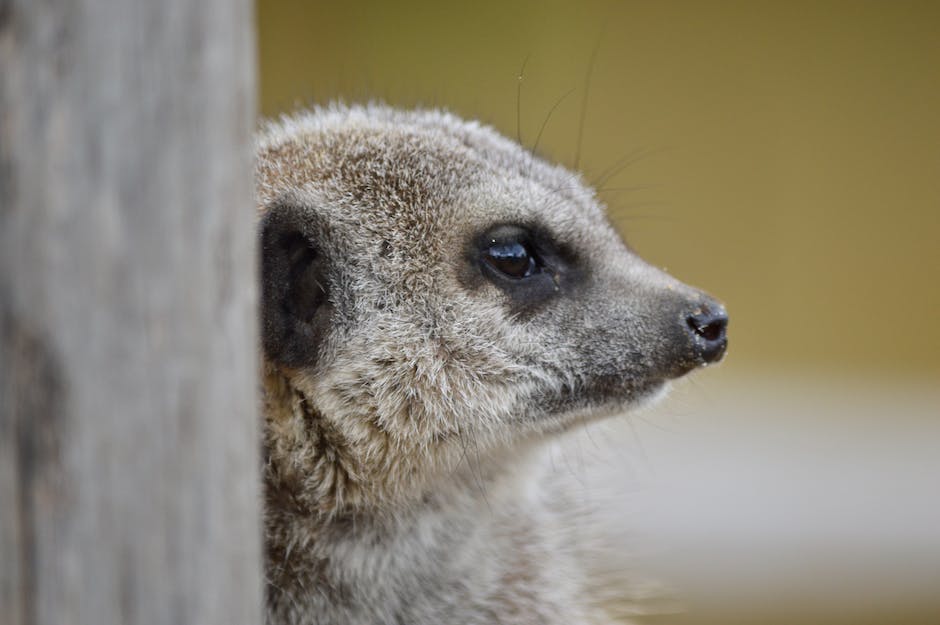Table of Contents
- Introduction
- The Importance of Arab Leaders’ Commitment to Combatting Global Wildlife Trafficking
- Strategies Implemented by Arab Leaders to Tackle Wildlife Trafficking on a Global Scale
- Collaborative Efforts between Arab Leaders and International Organizations in the Fight Against Wildlife Trafficking
- Success Stories and Challenges Faced by Arab Leaders in Combating Global Wildlife Trafficking
- Q&A
- Conclusion
Empowering Arab Leaders to Protect Wildlife and Preserve Our Planet
Introduction
The Role of Arab Leaders in the Fight Against Global Wildlife Trafficking
Arab leaders play a crucial role in the fight against global wildlife trafficking. As custodians of vast and diverse ecosystems, Arab countries are home to a wide range of unique and endangered species. The illegal trade of wildlife poses a significant threat to these species, as well as to the ecological balance and biodiversity of the region. Recognizing the importance of protecting their natural heritage, Arab leaders have taken proactive measures to combat wildlife trafficking and promote conservation efforts. This introduction will explore the role of Arab leaders in addressing this pressing issue and highlight their contributions to the global fight against wildlife trafficking.
The Importance of Arab Leaders’ Commitment to Combatting Global Wildlife Trafficking

The fight against global wildlife trafficking is a pressing issue that requires the commitment and collaboration of leaders from all over the world. Arab leaders, in particular, play a crucial role in this fight due to the unique challenges and opportunities they face in their region. The importance of their commitment cannot be overstated, as it has the potential to make a significant impact on the conservation of endangered species and the preservation of biodiversity.
One of the main reasons why Arab leaders’ commitment is crucial is the geographical location of the Arab region. Situated at the crossroads of Africa, Asia, and Europe, the Arab region serves as a major transit point for illegal wildlife trade. This makes it a critical area for enforcement efforts and cooperation with neighboring countries. Arab leaders have the opportunity to strengthen border controls, enhance intelligence sharing, and improve law enforcement capabilities to disrupt the illegal wildlife trade networks operating in their region.
Furthermore, Arab leaders have a responsibility to protect their own unique wildlife species that are targeted by traffickers. The Arab region is home to a diverse range of iconic species, such as the Arabian leopard, Arabian oryx, and hawksbill turtle. These species are highly valued in the illegal wildlife trade due to their rarity and cultural significance. By prioritizing the protection of these species, Arab leaders can contribute to the global effort to combat wildlife trafficking and ensure the survival of these emblematic species for future generations.
In addition to the conservation aspect, Arab leaders’ commitment to combatting wildlife trafficking is also important from a security perspective. The illegal wildlife trade is often linked to other forms of organized crime, including drug trafficking, arms smuggling, and money laundering. By cracking down on wildlife trafficking, Arab leaders can disrupt these criminal networks and contribute to regional stability. This is particularly relevant in conflict-affected areas, where the illegal wildlife trade is used to fund armed groups and perpetuate violence.
To effectively combat wildlife trafficking, Arab leaders need to prioritize the development and implementation of comprehensive national legislation and policies. This includes strengthening penalties for wildlife crimes, improving coordination between law enforcement agencies, and investing in training and capacity building for enforcement personnel. Arab leaders should also promote public awareness campaigns to educate their citizens about the negative impacts of wildlife trafficking and the importance of conservation.
Furthermore, Arab leaders should actively engage in regional and international initiatives to combat wildlife trafficking. This includes participating in forums such as the Convention on International Trade in Endangered Species of Wild Fauna and Flora (CITES) and supporting initiatives like the United for Wildlife Transport Taskforce. By collaborating with other countries and organizations, Arab leaders can share best practices, exchange information, and coordinate efforts to disrupt the illegal wildlife trade.
In conclusion, the commitment of Arab leaders is crucial in the fight against global wildlife trafficking. Their geographical location, unique wildlife species, and security concerns make their involvement essential. By prioritizing the protection of their own wildlife, strengthening legislation and enforcement, and engaging in regional and international initiatives, Arab leaders can make a significant impact on the conservation of endangered species and the preservation of biodiversity. The time to act is now, and Arab leaders have a vital role to play in this global effort.
Strategies Implemented by Arab Leaders to Tackle Wildlife Trafficking on a Global Scale
Strategies Implemented by Arab Leaders to Tackle Wildlife Trafficking on a Global Scale
Wildlife trafficking is a global issue that poses a significant threat to biodiversity and ecosystems. Arab leaders have recognized the importance of addressing this problem and have implemented various strategies to combat wildlife trafficking on a global scale. These strategies aim to disrupt the illegal trade networks, strengthen law enforcement, and raise awareness about the importance of protecting wildlife.
One of the key strategies implemented by Arab leaders is the establishment of specialized law enforcement units dedicated to combating wildlife trafficking. These units are equipped with the necessary resources and training to effectively investigate and prosecute wildlife criminals. By focusing on intelligence gathering, surveillance, and interagency cooperation, these units have been successful in dismantling major wildlife trafficking networks operating within and outside Arab countries.
In addition to law enforcement efforts, Arab leaders have also recognized the importance of international collaboration in tackling wildlife trafficking. They have actively engaged with international organizations such as INTERPOL and the United Nations Office on Drugs and Crime (UNODC) to strengthen cooperation and information sharing. This collaboration has led to the development of joint operations and initiatives aimed at disrupting the illegal wildlife trade routes and bringing the perpetrators to justice.
Furthermore, Arab leaders have taken steps to raise awareness about the devastating impacts of wildlife trafficking on both the environment and society. They have launched public awareness campaigns, organized educational programs, and supported research initiatives to highlight the importance of protecting wildlife and the consequences of illegal trade. By engaging the public and promoting a sense of responsibility towards wildlife conservation, Arab leaders have been able to mobilize support for their efforts and encourage individuals to report any suspicious activities related to wildlife trafficking.
Another important strategy implemented by Arab leaders is the strengthening of legislation and regulations related to wildlife protection. They have enacted stricter laws and penalties for wildlife trafficking offenses, making it more difficult for criminals to operate with impunity. By enhancing legal frameworks, Arab leaders have sent a clear message that wildlife trafficking will not be tolerated, and those involved will face severe consequences.
Furthermore, Arab leaders have recognized the need to address the root causes of wildlife trafficking, such as poverty and lack of alternative livelihoods. They have implemented socio-economic development programs in communities affected by wildlife trafficking, providing them with sustainable income-generating opportunities. By addressing the underlying socio-economic factors, Arab leaders aim to reduce the incentives for individuals to engage in illegal wildlife trade and promote a more sustainable and inclusive approach to conservation.
In conclusion, Arab leaders have implemented a range of strategies to tackle wildlife trafficking on a global scale. These strategies include the establishment of specialized law enforcement units, international collaboration, public awareness campaigns, strengthening of legislation, and addressing the root causes of wildlife trafficking. By taking a comprehensive approach, Arab leaders have made significant progress in disrupting the illegal wildlife trade networks and protecting biodiversity. However, the fight against wildlife trafficking is an ongoing battle that requires continued commitment and cooperation from all stakeholders. Only through collective efforts can we ensure the survival of our planet’s precious wildlife for future generations.
Collaborative Efforts between Arab Leaders and International Organizations in the Fight Against Wildlife Trafficking
Collaborative Efforts between Arab Leaders and International Organizations in the Fight Against Wildlife Trafficking
Wildlife trafficking is a global issue that poses a significant threat to biodiversity and ecosystems. It involves the illegal trade of endangered species, their parts, and products derived from them. This illicit trade not only undermines conservation efforts but also fuels organized crime and threatens national security. Recognizing the urgency of the situation, Arab leaders have joined forces with international organizations to combat wildlife trafficking and protect their natural heritage.
One of the key collaborative efforts between Arab leaders and international organizations is the establishment of regional networks and task forces. These networks serve as platforms for sharing information, coordinating actions, and strengthening law enforcement capacities. For instance, the Arab Regional Network for Combating Wildlife Crime was established in 2017 under the auspices of the United Nations Environment Programme (UNEP). This network brings together Arab countries to exchange best practices, enhance cooperation, and develop joint strategies to combat wildlife trafficking.
Furthermore, Arab leaders have actively engaged with international organizations such as the Convention on International Trade in Endangered Species of Wild Fauna and Flora (CITES). CITES is an international agreement that regulates the trade of endangered species and their products. Arab countries have become parties to CITES and have implemented its provisions to control and monitor the trade in wildlife. By doing so, they contribute to the global efforts to combat wildlife trafficking and ensure the sustainable use of natural resources.
In addition to regional networks and international agreements, Arab leaders have also taken steps to strengthen their national legislation and enforcement mechanisms. They have enacted laws and regulations that criminalize wildlife trafficking and impose severe penalties on offenders. For instance, the United Arab Emirates (UAE) introduced the Federal Law No. 11 of 2002 on regulating and controlling international trade in endangered species. This law prohibits the import, export, re-export, and possession of endangered species without proper permits. It also establishes a specialized unit within the Ministry of Climate Change and Environment to enforce these regulations.
Moreover, Arab leaders have recognized the importance of raising public awareness and engaging local communities in the fight against wildlife trafficking. They have launched educational campaigns, organized workshops, and established partnerships with civil society organizations. These initiatives aim to educate the public about the consequences of wildlife trafficking, promote responsible consumption, and encourage reporting of illegal activities. By involving local communities, Arab leaders ensure that the fight against wildlife trafficking becomes a collective effort that extends beyond government institutions.
In conclusion, the role of Arab leaders in the fight against global wildlife trafficking is crucial. Through collaborative efforts with international organizations, they have established regional networks, engaged with international agreements, and strengthened national legislation and enforcement mechanisms. By raising public awareness and involving local communities, they ensure that the fight against wildlife trafficking becomes a shared responsibility. However, more needs to be done to address the underlying drivers of wildlife trafficking, such as poverty and corruption. Arab leaders must continue to work together with international organizations and invest in sustainable development to achieve long-term success in combating this illicit trade. Only through collective action can we protect our natural heritage and preserve the biodiversity that sustains our planet.
Success Stories and Challenges Faced by Arab Leaders in Combating Global Wildlife Trafficking
Success Stories and Challenges Faced by Arab Leaders in Combating Global Wildlife Trafficking
Wildlife trafficking is a global issue that poses a significant threat to biodiversity and ecosystems worldwide. Arab leaders have recognized the importance of addressing this problem and have taken steps to combat wildlife trafficking within their countries and on an international level. While there have been some success stories, there are also numerous challenges that Arab leaders face in their efforts to tackle this illicit trade.
One success story comes from the United Arab Emirates (UAE), which has made significant progress in combating wildlife trafficking. The UAE has implemented strict laws and regulations to prevent the illegal trade of wildlife products. In 2016, the UAE enacted a federal law that prohibits the possession, trade, and transportation of endangered species and their products. This law has been instrumental in curbing wildlife trafficking within the country.
Furthermore, the UAE has established partnerships with international organizations, such as the Convention on International Trade in Endangered Species of Wild Fauna and Flora (CITES), to strengthen their efforts in combating wildlife trafficking. Through these collaborations, the UAE has been able to enhance their capacity to detect and intercept illegal wildlife shipments, leading to successful prosecutions and the dismantling of criminal networks involved in this illicit trade.
Another success story comes from Jordan, which has made significant strides in combating wildlife trafficking, particularly in the illegal trade of falcons. Falcons are highly valued in the Arab world for their cultural and sporting significance. However, the illegal trade of falcons has posed a threat to their populations in the wild. Jordan has implemented strict regulations and enforcement measures to combat this illegal trade.
Jordan has established a specialized unit within its law enforcement agencies to tackle wildlife trafficking. This unit has been successful in intercepting illegal shipments of falcons and prosecuting those involved in the trade. Additionally, Jordan has collaborated with neighboring countries, such as Saudi Arabia and the UAE, to strengthen regional efforts in combating wildlife trafficking. These partnerships have resulted in increased information sharing and joint operations, leading to successful seizures and arrests.
Despite these success stories, Arab leaders face numerous challenges in their fight against global wildlife trafficking. One major challenge is the vastness of the illegal wildlife trade network, which spans across continents and involves sophisticated criminal networks. Arab countries serve as both source and transit points for illegal wildlife products, making it difficult to track and intercept these shipments.
Another challenge is the lack of awareness and education about the consequences of wildlife trafficking. Many people in Arab countries are unaware of the impact of this illicit trade on biodiversity and ecosystems. Arab leaders need to invest in public awareness campaigns to educate their citizens about the importance of protecting wildlife and the consequences of engaging in wildlife trafficking.
Furthermore, corruption and weak law enforcement pose significant challenges in combating wildlife trafficking. Some Arab countries struggle with corruption within their law enforcement agencies, which hampers their ability to effectively tackle this issue. Arab leaders need to address these issues by implementing stronger anti-corruption measures and providing training and resources to law enforcement agencies.
In conclusion, Arab leaders have made significant progress in combating global wildlife trafficking, with success stories emerging from countries like the UAE and Jordan. However, they also face numerous challenges, including the vastness of the illegal wildlife trade network, lack of awareness and education, and corruption within law enforcement agencies. Addressing these challenges requires a multi-faceted approach, including stricter regulations, international collaborations, public awareness campaigns, and anti-corruption measures. By continuing their efforts and addressing these challenges, Arab leaders can play a crucial role in the fight against global wildlife trafficking and contribute to the conservation of biodiversity and ecosystems.
Q&A
1. What is the role of Arab leaders in the fight against global wildlife trafficking?
Arab leaders play a crucial role in combating global wildlife trafficking.
2. How do Arab leaders contribute to the fight against global wildlife trafficking?
Arab leaders contribute by implementing and enforcing laws, promoting international cooperation, and raising awareness about the issue.
3. What challenges do Arab leaders face in combating global wildlife trafficking?
Arab leaders face challenges such as limited resources, corruption, and the presence of organized criminal networks involved in wildlife trafficking.
4. What can Arab leaders do to enhance their efforts in combating global wildlife trafficking?
Arab leaders can enhance their efforts by strengthening law enforcement, increasing funding for conservation initiatives, and collaborating with international organizations and neighboring countries.
Conclusion
In conclusion, Arab leaders play a crucial role in the fight against global wildlife trafficking. Their involvement and commitment are essential in addressing this pressing issue, as it not only affects the biodiversity and ecosystems but also poses a threat to national security and sustainable development. By implementing stricter laws, enhancing law enforcement efforts, promoting international cooperation, and raising public awareness, Arab leaders can contribute significantly to combat wildlife trafficking and protect the world’s precious wildlife.




